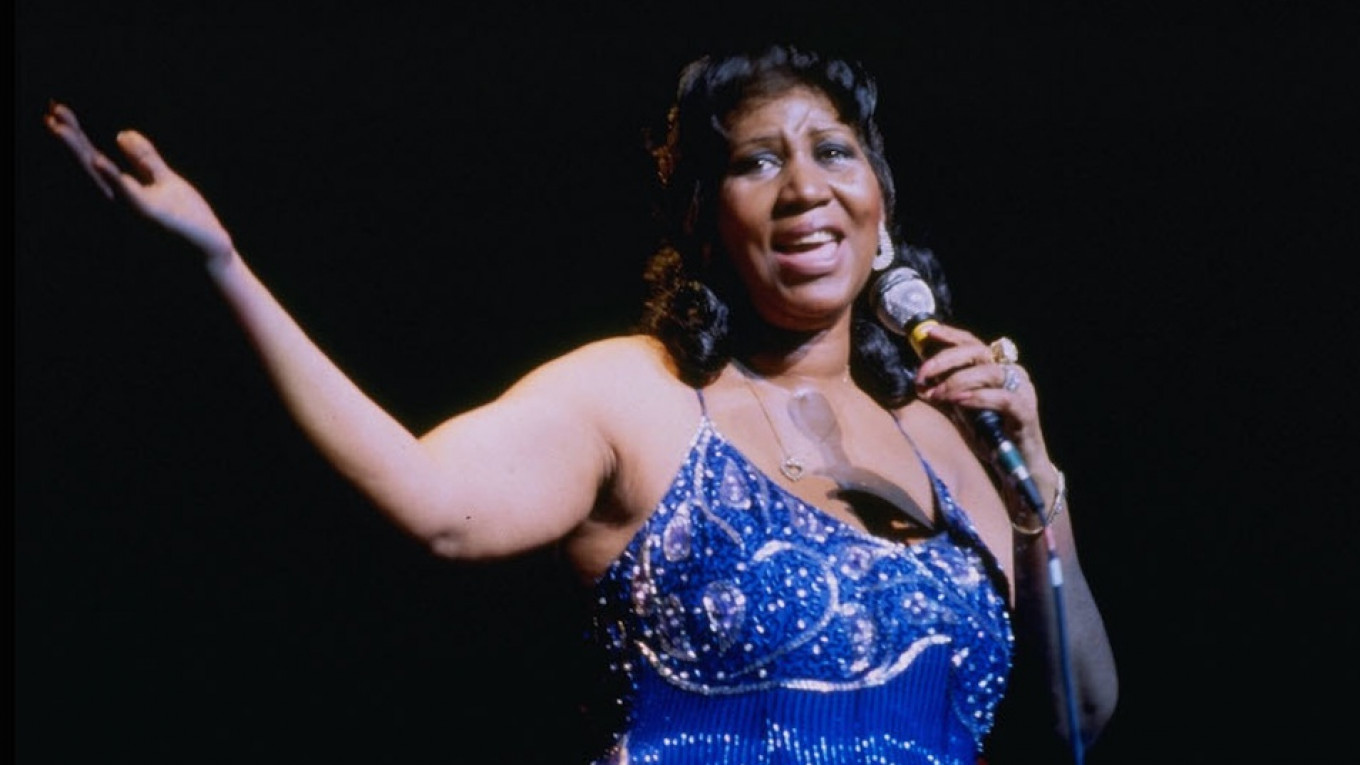I remember exactly where I was the first time I heard the incredible voice of Aretha Franklin. I was 12 years old. It was 1967, the Summer of Love, and we lived in what was then called Czechoslovakia.
Every night, while staying at a children's holiday camp, I tuned my little transistor radio to Radio Luxembourg 208 AM. They were probably Europe's biggest pirate station and they played all the current rock and pop hits. There was Aretha. At first, I thought I was listening to some freaky rock ‘n’ roll man like Little Richard, but a minute later I realized this was a woman. A woman who sang like no other woman in the world.
"Respect" was the name of the song, written by the remarkable Otis Redding. Aretha did to this soulful tune exactly what Jimi Hendrix did with Bob Dylan's "All Along the Watchtower." She transfigured what was just a good song into a passionate anthem of cosmic proportions.
A few months later, at the beginning of the "Prague Spring," I heard Aretha’s version of "Respect" played by the famous Czech band Framus Five at the First Beat Festival in Prague, where it was greeted ecstatically by the crowd like an important statement. Only much later did I find out that "Respect" had become an iconic song for human rights and feminist movements.
Aretha Franklin was born in Memphis, Tennessee in 1942. Later, the family moved to Buffalo, New York and eventually to Detroit. Aretha's mother died from a heart attack when she was 10 and it was her father who played a decisive role in the singer's life.
C.L.Franklin was a well-known Baptist preacher and he had an amazing voice. His congregation brought together some great artists, like the genius gospel singer Mahalia Jackson and soul superstar Sam Cooke, and human rights champions, including Martin Luther King. Often, Franklin invited them to his home.
Franklin started to manage his big-voiced daughter when Aretha was 12 years old, and at the age of 14, she recorded her first album of spiritual songs. A proper recording contract with a major label was signed five years later, but it wasn't until 1967 that Aretha Franklin became a true superstar and a household name both in the United States and Western Europe.
A string of stunning rhythm and blues and soul hits like "I Never Loved a Man (The Way I Love You)," "Respect," "Baby I Love You" and "Chain of Fools" won her the honorary title of The Queen of Soul and put her on par with "Soul Brother Number One," James Brown.
The quality of her powerful operatic mezzo soprano (she once performed Giacomo Puccini's "Nessun Dorma," replacing Luciano Pavarotti at the Grammys) mixed with the explosive temperament of gospel and blues, made her performances a unique experience.
In the U.S.S.R. and Russia, however, Aretha Franklin was never truly popular. Although she sang at Martin Luther King's funeral and participated in anti-racism rallies, the Communist cultural authorities never embraced her as a friend of the Soviet Union, or invited her to sing in Moscow like Paul Robeson before her. This probably had something to do with her ecstatic performing manner and the religious bent to many of her songs.
Among the "alternative youth" and lovers of American music in the Soviet Union and then Russia, rock and jazz were the preferred genres, and Aretha didn't really belong to them. Even fans of black soul music leaned towards softer, "sexier" tunes by the likes of Stevie Wonder.
I recall that the only region of the U.S.S.R. where Aretha Franklin was huge, was in the Caucasus republics of Armenia, Azerbaijan and Georgia. Perhaps the biggest moment of Soviet glory for Aretha occurred when she played a cameo role and sang her furious feminist "Think" in the mega-popular "Blues Brothers" movie in 1980.
The Communist authorities never embraced her as a friend of the Soviet Union
She continued working, performing and recording her entire life. Aretha's last and 42nd studio album called "Brand New Me" was released in 2017 and contained new versions of the soul diva's hits like "Respect" and "(You Make Me Feel Like a) Natural Woman," sung with the Royal Philharmonic Orchestra.
A devoted Democrat, she supported both Clintons and sang at Bill's inauguration in 1992. When U.S. President Donald Trump asked her to do the same in 2017, she politely refused, but didn't make it public. Among the numerous statements made by celebrities all over the world to commemorate Her Majesty, The Queen of Soul, I particularly liked that of Barack and Michelle Obama.
It says: "America has no royalty. But we do have a chance to earn something more enduring.” It continues: “Through her compositions and unmatched musicianship, Aretha helped define the American experience. In her voice, we could feel our history, all of it and in every shade — our power and our pain, our darkness and our light, our quest for redemption and our hard-won respect."
Aretha Franklin — the voice and the feeling we'll never forget.
Artemy Troitsky is a journalist and teacher in Tallinn, Estonia. The views and opinions expressed in opinion pieces do not necessarily reflect the position of The Moscow Times.
A Message from The Moscow Times:
Dear readers,
We are facing unprecedented challenges. Russia's Prosecutor General's Office has designated The Moscow Times as an "undesirable" organization, criminalizing our work and putting our staff at risk of prosecution. This follows our earlier unjust labeling as a "foreign agent."
These actions are direct attempts to silence independent journalism in Russia. The authorities claim our work "discredits the decisions of the Russian leadership." We see things differently: we strive to provide accurate, unbiased reporting on Russia.
We, the journalists of The Moscow Times, refuse to be silenced. But to continue our work, we need your help.
Your support, no matter how small, makes a world of difference. If you can, please support us monthly starting from just $2. It's quick to set up, and every contribution makes a significant impact.
By supporting The Moscow Times, you're defending open, independent journalism in the face of repression. Thank you for standing with us.
Remind me later.








